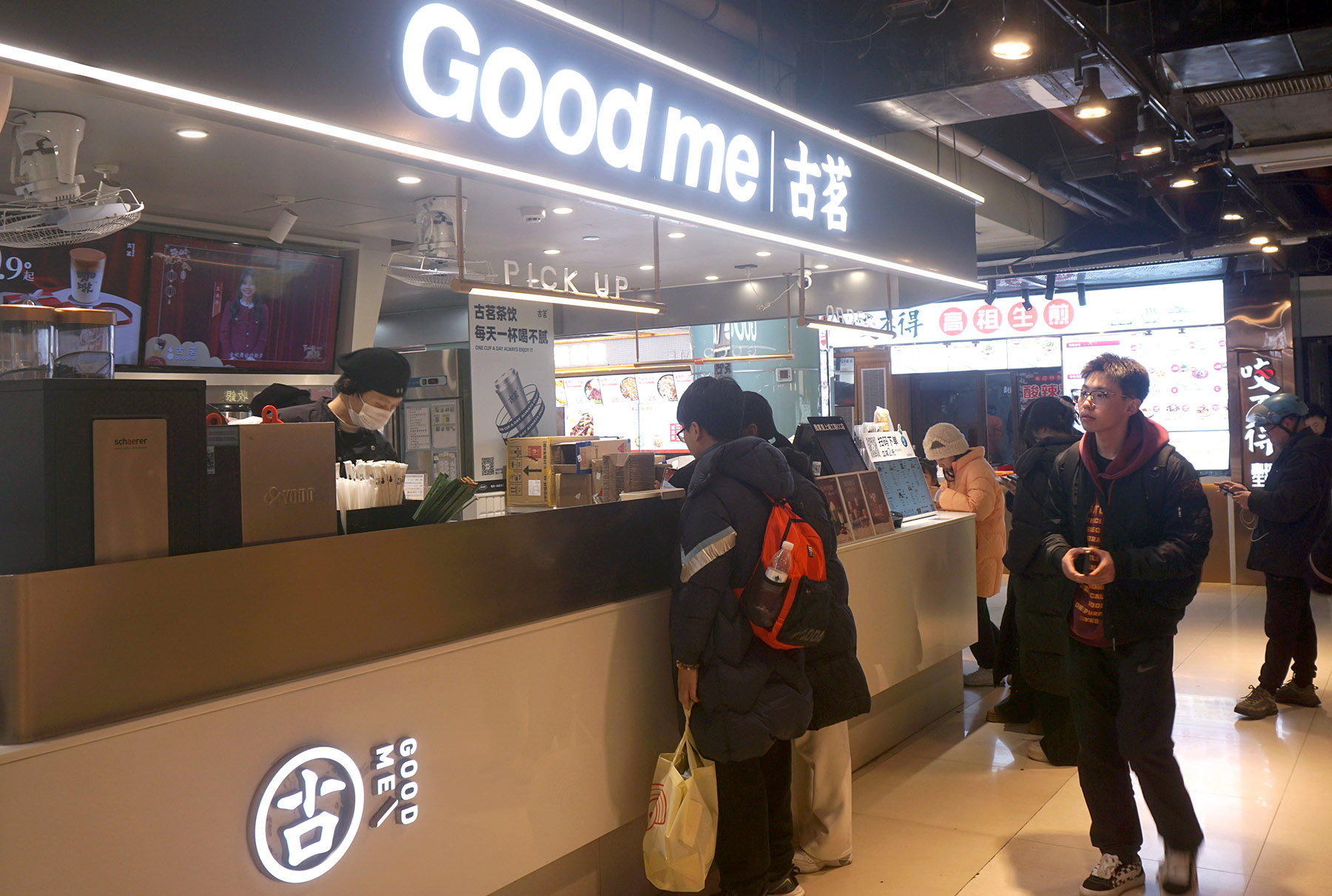
Guming Holdings Ltd, a leading mid-priced freshly made tea brand, floated on the Hong Kong bourse last week, becoming the third publicly traded tea beverage company after Nayuki and Sichuan Baicha Baidao.
In terms of store count and gross merchandise value (GMV), Guming, operating its beverage brand Good me, has grown into the second-largest player in the industry, following only Mixue.
Guming's stock debuted at an initial offering price of HK$10 ($1.29) but closed at HK$9.30 on its first trading day, marking a decline of 6.44 percent.
READ MORE: Leisure tea firms seek breakout via HK floats
The tea chain has rapidly expanded its store network through a franchise-driven model and regional penetration.
Guming reported revenue of 7.67 billion yuan ($1.06 billion) and GMV of 19.2 billion yuan in 2023, a 37.2 percent increase from the previous year.
In the first three quarters of 2024, the company recorded revenue of 6.4 billion yuan and GMV of 16.6 billion yuan.
By the end of September 2024, Guming had expanded to 9,778 locations with 80 percent of its outlets concentrated in lower-tier cities and townships.
Franchising remains the core of Guming's business model, contributing about 99.9 percent of its GMV from 2021 to 2023, as well as in the first three quarters of 2024.
Guming began in a small town in Taizhou, Zhejiang province, where founder Wang Yun'an opened a modest 30-square-meter tea shop.
Wang relied on his own taste buds to develop recipes, often tasting dozens of times a day, according to Taizhou Daily. As business picked up, he saw franchising as a path to expansion.
Wang guided Guming's first franchisee. He knew that a store didn't need luxurious decor to stand out in a small town — bright lighting was enough to attract attention.
This approach laid the foundation for Guming's rapid expansion.
Guming's expansion focuses on regional densification, aiming to establish at least 500 stores per province before moving into neighboring regions. This strategy has helped the company secure leading positions in Zhejiang, Fujian and Jiangxi provinces,
A key competitive advantage for Guming is its tightly integrated cold-chain logistics system, which enables frequent deliveries of fresh ingredients — outpacing competitors that typically restock every four days.
According to Zhu Danpeng, a food and drink analyst in China, lower-tier markets are a key strategic lever for the growth of leading new-style tea beverage brands.
"In these county and township markets, sales prices are actually on par with those in first-tier cities. However, rental costs are two-thirds lower and labor expenses are reduced by 80 percent," said Zhu.
"This significantly boosts not only revenue growth and profit margins but also enhances brand recognition, economies of scale, customer loyalty and supply chain optimization."
ALSO READ: CATL files for Hong Kong listing that could raise $5 billion
Despite its rapid growth, Guming faces mounting challenges. China's tea beverage market is approaching saturation, with iiMedia Research forecasting a slowdown in growth from 6.4 percent in 2024 to just 1.5 percent by 2028.
Market leader Heytea recently suspended franchise expansion, citing concerns about oversupply and declining operational efficiency.
Meanwhile, rivals are expanding aggressively.
Mixue Group is planning a $500 million Hong Kong IPO. Chagee has surpassed 6,000 stores globally and recorded a GMV of over 10 billion yuan. The company is reportedly accelerating preparations for a listing in the United States.
Auntea Jenny, which updated its Hong Kong IPO prospectus for the second time in December, has opened more than 7,000 stores to date.


